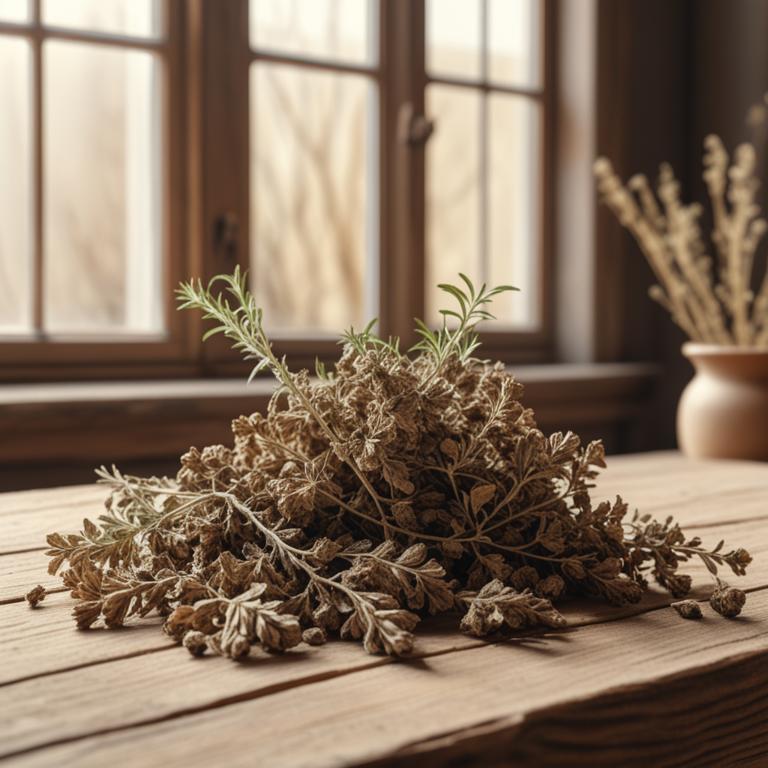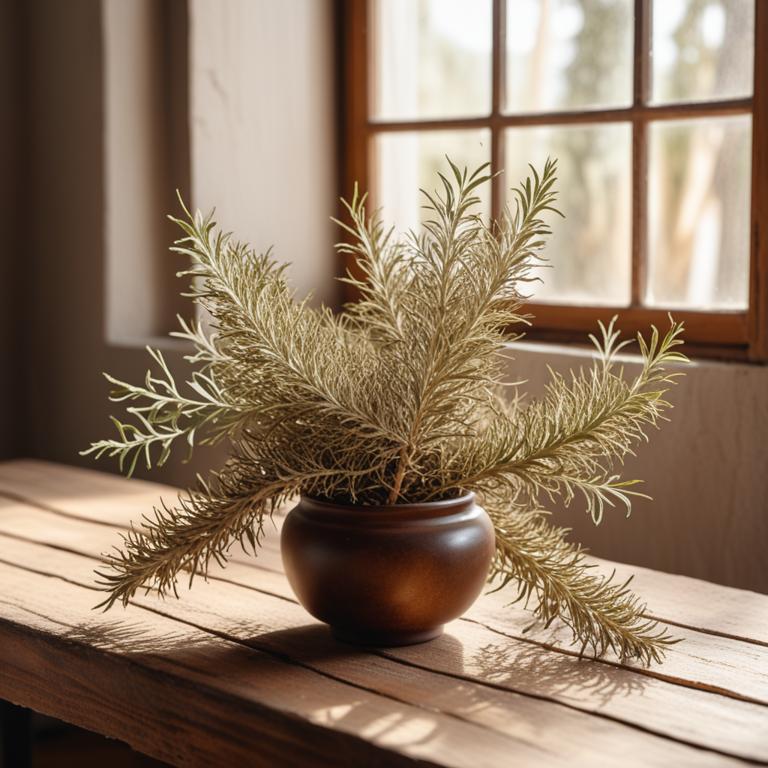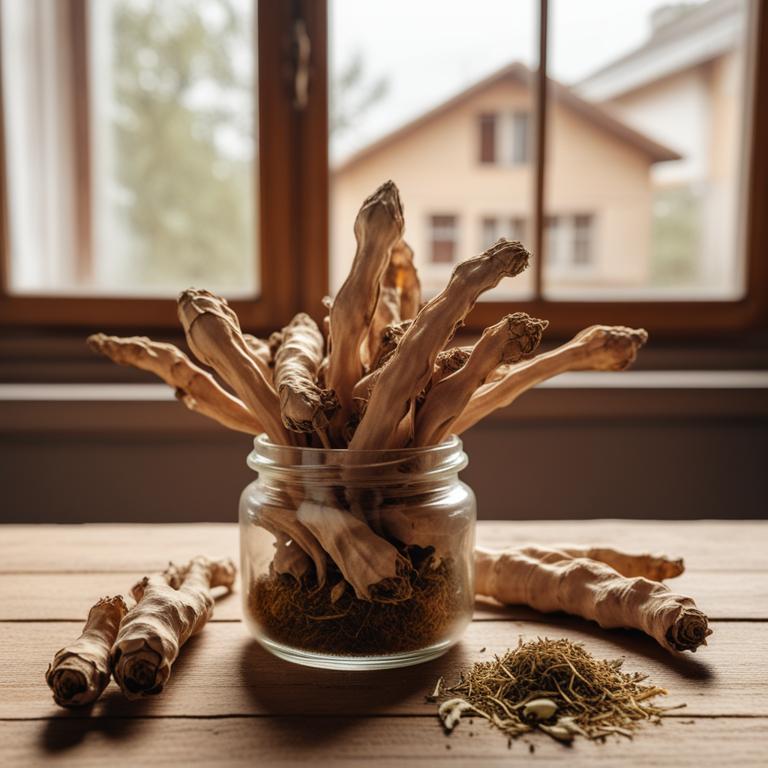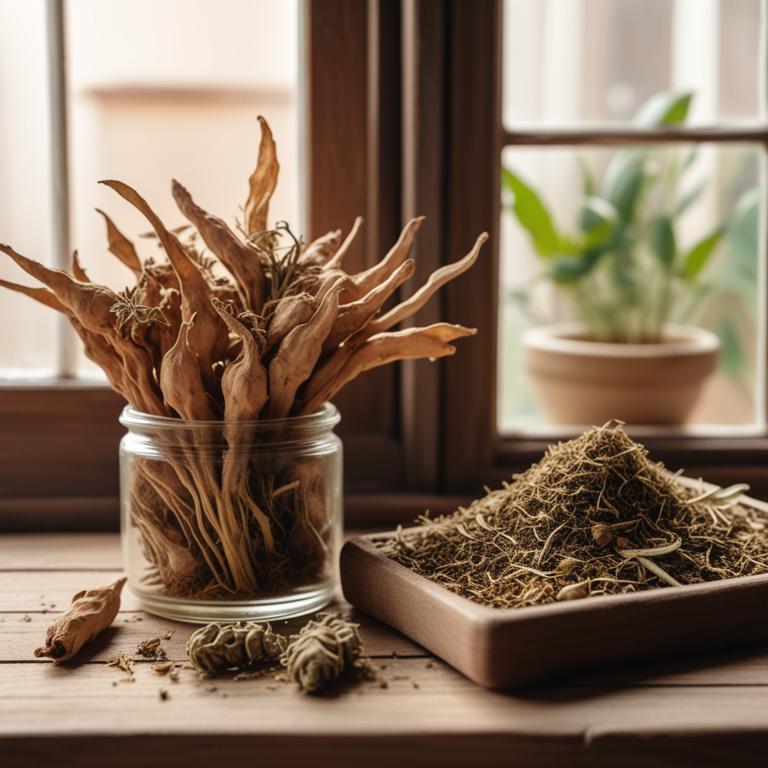Updated: Dec 1, 2024
Strep Throat: Causes, Herbal Remedies for Sore Throat, and Medicinal Herbs
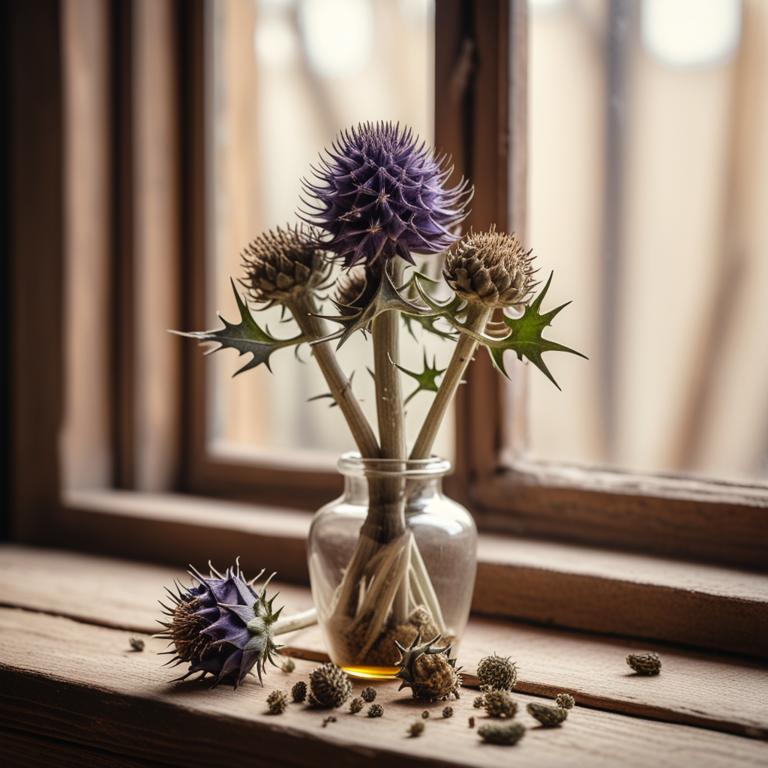
Strep throat is a common illness that can make your life miserable.
It's a bacterial infection that causes a sore throat, fever, and swollen lymph nodes. Strep throat can make it hard to swallow and talk, and can even lead to missed school or work days. The cause of strep throat is usually the Group A Streptococcus bacteria, which spreads through the air when an infected person talks or coughs. It can also be spread through close contact with someone who has the infection. Herbal remedies can help alleviate the symptoms of strep throat.
Some herbs, like slippery elm and licorice root, have anti-inflammatory properties that can soothe the throat and reduce pain. Echinacea and goldenseal are also believed to have antibacterial properties that can help fight off the infection. To use these herbs, you can make teas by steeping the dried herbs in hot water. You can also take them in capsule or tincture form. Some people also use a combination of herbs in a syrup or lozenge form to help soothe the throat.
Drinking plenty of fluids, like herbal teas, can also help to thin out mucus and keep your throat moist.
Table of Contents
- What are the root causes of strep throat?
- What benefits can herbs offer for strep throat treatment?
- What medicinal herbs are commonly used to treat strep throat?
- What herbal treatments have been found to be most effective for strep throat?
- Which herbs should you steer clear of if you have strep throat?
- FAQ
What are the root causes of strep throat?
The main causes of strep throat are infections caused by bacteria.
The main culprit is Group A beta Streptococcus, also known as Strep A or GABHS (Group A beta-hemolytic Streptococcus). This type of bacteria is responsible for about 70% of strep throat cases. Strep A is highly contagious and can be spread through the air when an infected person talks, coughs, or sneezes.
It can also be spread through contact with an infected person's saliva, mucus, or skin. The bacteria Group A beta Streptococcus pyogenes, which is another name for Strep A, is a type of Streptococcus pyogenes. This bacteria thrives in the throat and can cause inflammation and soreness.
The exact reason why some people get strep throat while others don't is not fully understood, but it's thought that a combination of factors, including a weakened immune system, can contribute to the development of the infection.
What benefits can herbs offer for strep throat treatment?
Using herbs for strep throat can be a helpful addition to traditional treatment.
One of the main benefits is that they can help reduce the severity of symptoms. They may ease the pain and discomfort of a sore throat, making it easier to swallow and talk. Herbs can also help reduce inflammation and fight off the underlying infection.
Some herbs have natural antibacterial properties, which can help prevent the spread of the infection and speed up the healing process. Additionally, herbs can help boost the immune system, making it easier for the body to fight off the infection on its own. This can be especially helpful for people who are prone to recurring strep throat infections.
By incorporating herbs into your treatment plan, you may be able to reduce the need for antibiotics and other medications, which can have negative side effects.
What medicinal herbs are commonly used to treat strep throat?

Herbs like Echinacea purpurea and Echinacea angustifolia are good for strep throat because they have compounds that help boost your immune system.
When you have strep throat, your immune system is fighting an infection, and these herbs can give it a boost to help it fight off the infection faster. Echinacea purpurea has a compound called alkylamides that helps reduce inflammation and fight off bacteria, while Echinacea angustifolia has compounds that help reduce the severity of the infection. Another herb that can help with strep throat is Zingiber officinale, or ginger. Ginger has anti-inflammatory properties that can help reduce the pain and swelling in your throat, making it easier to swallow and talk. It also has compounds that help break down mucus and reduce congestion, which can help you breathe easier. Licorice root, or Glycyrrhiza glabra, is another herb that can help with strep throat.
It has compounds that help soothe and calm the mucous membranes in your throat, reducing inflammation and pain. It also has antiviral properties that can help fight off the infection. Sambucus nigra, or elderberry, is also good for strep throat. It has antiviral properties that can help fight off the infection, and it also has compounds that help reduce inflammation and pain. Elderberry is also high in antioxidants, which can help protect your body from damage caused by free radicals. All of these herbs can be used together to help boost your immune system and fight off the infection.
You can make teas, tinctures, or infusions with these herbs, or take them in supplement form.
What herbal treatments have been found to be most effective for strep throat?
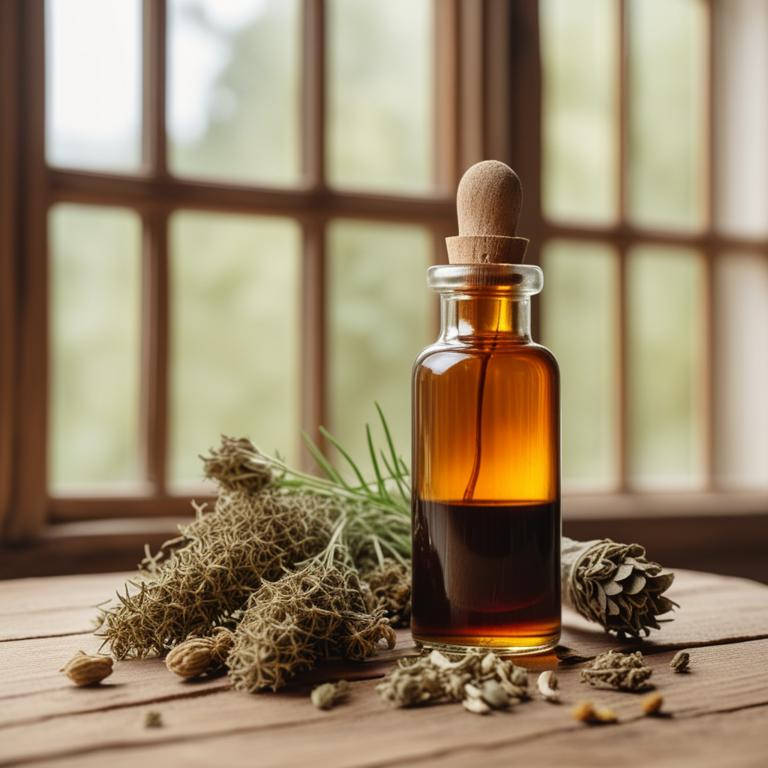
If you're dealing with strep throat, herbal preparations can be a great help.
For one, Elderberry Tincture is good because it's packed with antiviral compounds that can help fight off the infection. It works by targeting the viruses that cause strep throat, making it harder for them to multiply and spread. Another option is Echinacea Capsules, which contain powerful antioxidants that can help reduce inflammation and combat bacterial infections. When you take these capsules, the antioxidants get absorbed into your body, where they can start working to reduce the swelling and discomfort of strep throat. Herbal decoctions and infusions are also effective.
A decoction is made by simmering herbs in boiling water, which brings out their medicinal properties. For strep throat, a decoction made from herbs like yarrow or sage can help reduce inflammation and kill bacteria. An infusion, on the other hand, is made by steeping herbs in hot water. Infusions made from herbs like licorice root or slippery elm can help soothe the throat and reduce inflammation. Lastly, Slippery Elm Lozenges can be a lifesaver when you're dealing with strep throat. These lozenges are made from the root of the slippery elm tree, which is naturally soothing and can help reduce inflammation in the throat.
When you suck on a slippery elm lozenge, the soothing properties get absorbed into your throat, providing quick relief from the discomfort and pain of strep throat.
Additional Resources:
Which herbs should you steer clear of if you have strep throat?
If you have strep throat, it's a good idea to be careful with the herbs you use.
For instance, Rosmarinus officinalis, also known as rosemary, can be too stimulating for your throat when it's already inflamed. It might make the pain and discomfort worse, so it's best to avoid it for now.
Astragalus membranaceus, often used to boost the immune system, can actually make your body work harder, which might not be what you need when you're trying to recover from an illness like strep throat. Valeriana officinalis, or valerian root, can have a sedative effect, but it might not be the best choice for you if you're already feeling weak and tired from strep. Taxus baccata, also known as yew, contains a toxic compound that can be very bad for you, and using it when you have an infection like strep throat can increase the risk of complications.
Ginkgo biloba can thin your blood and make it harder for your body to fight off the strep bacteria, so it's not the best choice for you right now.
FAQ
Are there any specific herbs that can prevent strep throat?
Ginger and echinacea are herbs that some people use to help boost their immune system and prevent illness, including strep throat. Ginger has anti-inflammatory properties that may help reduce swelling and pain in the throat, while echinacea is believed to have immune-boosting properties that help fight off infections.
Is it safe to use herbal remedies for strep throat during pregnancy?
Using herbal remedies for strep throat during pregnancy can be a concern.
Some herbs, like slippery elm and echinacea, may help soothe a sore throat. However, others, like sage and licorice root, may contain compounds that aren't fully understood in pregnancy.
It's best to learn about the specific herbs and their potential effects before using them.
Are there any herbs that can reduce the frequency of strep throat?
Some herbs like echinacea and goldenseal may help reduce the frequency of strep throat.
Echinacea is known for its immune-boosting properties, while goldenseal has antibacterial qualities that can fight off infections.
Taking these herbs regularly may help prevent recurring episodes of strep throat, although more research is needed to confirm their effectiveness.
Can i combine different herbal remedies for strep throat?
You can combine different herbal remedies for strep throat, but use them in moderation.
Some people use a mix of slippery elm to soothe the throat and echinacea to boost the immune system. Others add licorice root to help reduce inflammation.
Just be sure to follow the recommended dosages for each remedy.
Related Articles
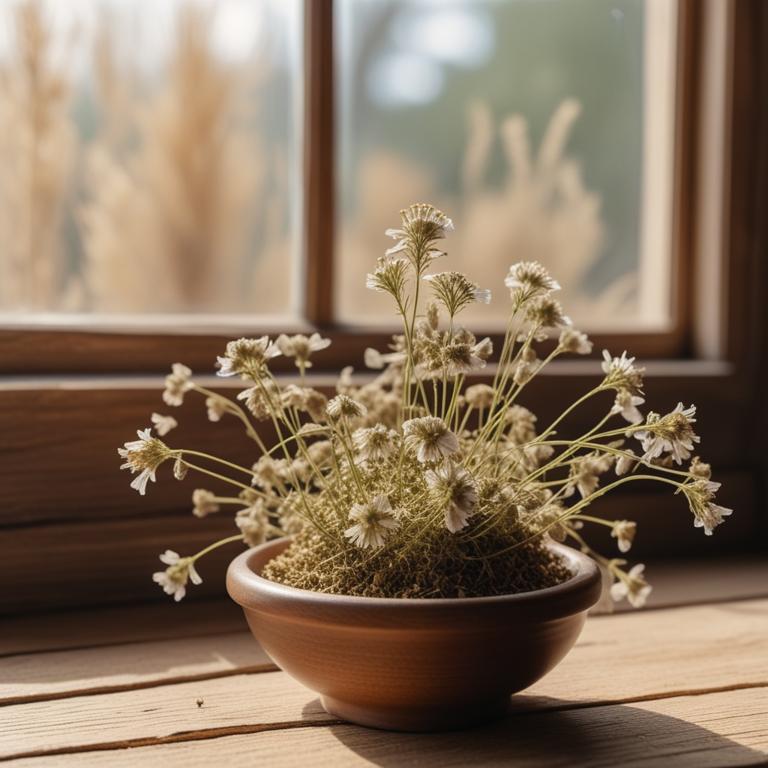
Pink Eye Causes and Natural Treatments with Medicinal Herbs

The Flu: A Guide to Causes, Medicinal Herbs, and Herbal Preparations

Feverish Feeling: Causes, Symptoms, and Herbal Solutions

Allergies: Exploring Causes and Natural Remedies with Medicinal Herbs
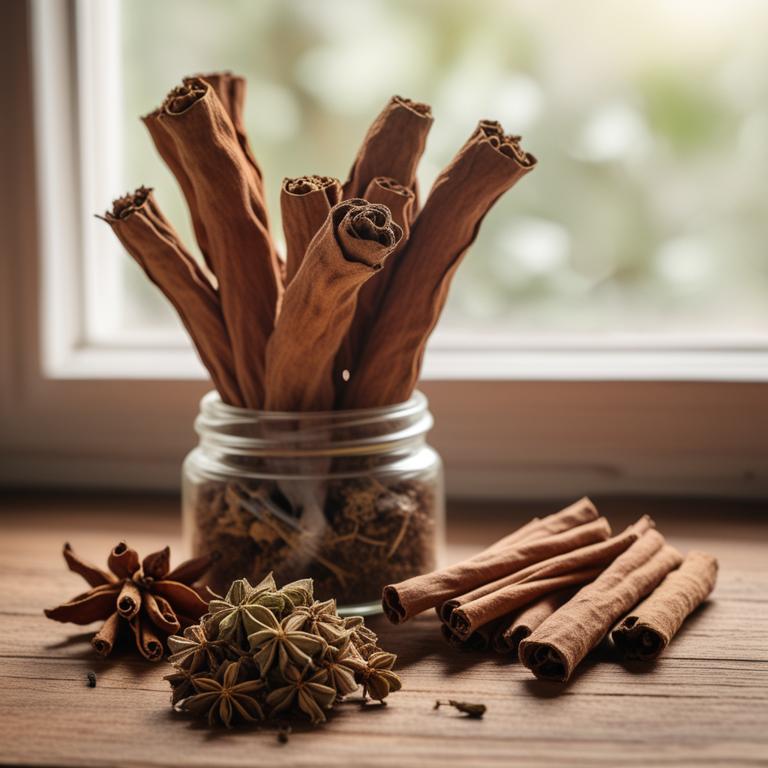
Enlarged Spleen and Herbal Medicine: Understanding the Connections
